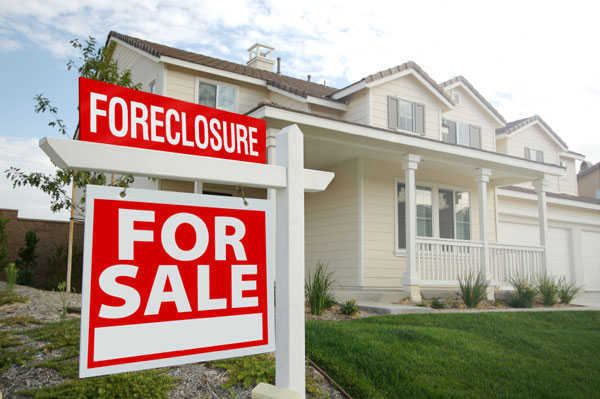

Buying your first home is what you have been daydreaming about for months if not years. Your favorite daydream is a sunny Saturday afternoon watching the kids run through the sprinkler on your freshly mowed lawn. And there is that pestering feeling of being a little overwhelmed with the big decisions you face about the biggest purchase you’ll ever make. Fortunately, many people have been where you are today and you can learn from their mistakes.
Here are the biggest mistakes first time buyers make and how you can avoid them.
- Thinking you need a 20% down payment to buy your home. This is a huge myth built on a single partial truth that applies to a small number of first time buyers. The partial truth is buyers who are taking out a conventional loan can avoid paying private mortgage insurance by making a 20% down payment. But the fact is that almost everyone (including those taking out a conventional loan) qualifies for a mortgage with much less than a 20% down payment. Popular first time mortgage programs are FHA, VA, and USDA loans – not conventional loans. You can get some VA loans for 0% down and most FHA loans start at 3.5% down.
- Not checking your credit report and making easy corrections. Your credit score, down payment, and steady income are the biggest keys to obtaining a mortgage. The higher your credit score, the more favorable the mortgage you will qualify for. That better mortgage can enable you to buy a better home and maybe in a better neighborhood. The fact is that about one-quarter of credit reports contain errors that can be easily corrected. Our blog, “Tips for Improving Your Credit Score to Buy a Home” provides helpful information to raise your credit score.
- Not involving a real estate agent soon enough. About 90% of buyers begin their home search on the internet and that can be very useful. There are apps and calculators to help lookup credit scores, understand mortgage calculations, monitor interest rates and a lot more. But none of this is a substitute for a real estate professional that helps navigate the entire process. Agents point you to solutions if you do run into problems. They help you understand what neighborhoods and which houses are in your price range. It’s their job to stay up to date with changes in the multiple listing system. They help you structure offers in a very competitive market and much more. The sooner you engage with a real estate agent, the sooner they will be helping you work through the process faster and for the best results.
- Not deciding how much house you can afford. Too much house makes for nice daydreams but can cause you to waste a lot of time. You’ll almost certainly spend time looking at houses that are out of your price range as a first time buyer. Or you may not realize how much house you can afford and spend time looking at disappointing houses when you can do better. Deciding how much you can afford is a two-step process. First, learn how much you qualify for using an online calculator or being prequalified with a broker (prequalifying comes before preapproval). Then create a personal budget to determine what you are comfortable paying each month. This can be looking at what is most affordable, reasonably affordable, and what would be a stretch for your budget if you qualify for a higher mortgage.
- Accepting the first mortgage rate quote. This is a biggie because you’ll be paying on your mortgage for many years to come. There are a lot of variables besides the interest rate in different mortgage programs. Unfortunately, the Consumer Financial Protection Bureau estimates that about half of homebuyers never shop for a loan. Besides interest rates, you want to consider multiple loan programs that include VA, USDA, and FHA. You also need to understand the small print that might require that you pay points to obtain a lower interest rate.
- Forgetting about closing costs and moving expenses. The down payment is a big nut to crack and some people forget to calculate the other costs that are involved when buying a home. Other closing costs include appraisal fee, home inspection fee, prorated property taxes, homeowner insurance, title insurance, and possibly legal fees. There might also be others. These can add up to $6,000 or $7,000 on a $200,000 home. A few can be wrapped into the balance of your loan and paid over time but some cannot. Be sure you know ahead of time how much you’ll need to bring to the closing table along with the down payment. One way to minimize most prorated costs is to close as near the end of the month as you can. If you are currently renting, you won’t have to pay the rent at the beginning of the month and your first mortgage payment won’t be due until the end of the next month. Closing near the end of the month can save you about one month in housing costs. And don’t think moving into a new home is free. Even if you have friends with pick-up trucks, it will still cost you several hundred dollars. Surprise expenses will also come up. It’s a good idea to have an emergency or reserve fund beyond your down payment and closing costs.
- Applying for credit before the sale is final. Just because you’ve been preapproved or even fully approved for a loan doesn’t mean it can’t be canceled. A day or a couple of days before the final closing, your lender will take another look at your finances. This is not the time to be applying for a new credit card or buying anything on credit. You need to leave everything alone that has qualified you for the loan. If you are right on the cusp for qualifying, even a big dinner out on your credit card could cause you problems. Even if your approval isn’t canceled, using credit shortly before the closing can cause your interest rate to go up or a delay in the closing while the lender takes a closer look at your finances. It’s best to leave your finances as stable as possible between the time you are approved and the final closing of your home purchase.







